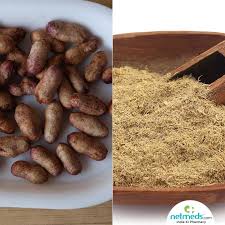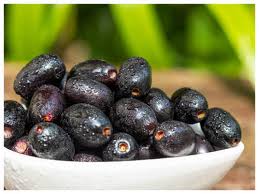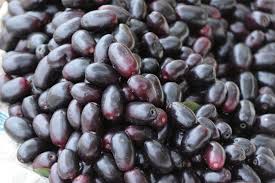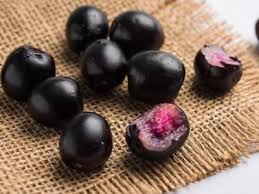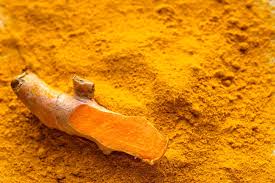
Kaali Haldi Side Effects: What You Should Know Before Use
Kaali Haldi, also known as Black Turmeric (Curcuma caesia), is a rare and potent herb highly valued in Ayurveda and traditional healing practices. While it is celebrated for its medicinal properties, such as enhancing immunity, aiding digestion, and supporting skin health, it is equally important to be aware of its possible side effects and precautions before using it. Many people consume Kaali Haldi without understanding its potency, dosage requirements, or contraindications, which can lead to health issues.
In this detailed guide, we will explore the potential side effects of Kaali Haldi, the situations in which it should be avoided, safe usage recommendations, and expert tips to ensure you benefit from it without unwanted risks. This information will help you make an informed decision before including Kaali Haldi in your wellness routine.
Long Description
- Understanding Kaali Haldi and Its Potency
Kaali Haldi belongs to the ginger family and has been used for centuries in Ayurvedic and folk medicine. It contains powerful bioactive compounds like curcuminoids, essential oils, and antioxidants. However, its strong potency means that incorrect use can result in negative effects, especially if consumed in large amounts or without proper guidance.
Unlike common turmeric (Curcuma longa), Kaali Haldi is much more concentrated in certain phytochemicals, making it a double-edged sword — highly beneficial in the right dose but potentially harmful in excess.
- Common Side Effects of Kaali Haldi
While Kaali Haldi is generally safe in small, prescribed doses, some individuals may experience side effects:
a. Digestive Issues
Overconsumption of Kaali Haldi can irritate the stomach lining, leading to:
Nausea
Stomach cramps
Acid reflux
Diarrhea
This usually happens when Kaali Haldi is consumed in raw or powdered form in large quantities without food.
b. Allergic Reactions
Some people are allergic to turmeric family plants. Symptoms may include:
Itching or skin rashes
Swelling of the lips or tongue
Sneezing or watery eyes
A patch test is recommended before applying Kaali Haldi externally.
c. Blood Thinning Effect
Kaali Haldi has natural blood-thinning properties. While this can be beneficial for heart health, it can be risky for:
People on blood-thinning medication
Individuals scheduled for surgery (increased bleeding risk)
d. Low Blood Sugar Levels
Kaali Haldi may lower blood sugar levels, which can be dangerous for:
Diabetics on medication (risk of hypoglycemia)
Individuals prone to fainting due to low sugar
e. Pregnancy and Breastfeeding Risks
Pregnant women are advised to avoid Kaali Haldi in medicinal doses, as it can stimulate uterine contractions. Similarly, breastfeeding mothers should avoid high doses without medical advice.
f. Kidney Stones Risk
Excessive use of Kaali Haldi may increase oxalate levels, which can contribute to kidney stone formation in susceptible individuals.
- Who Should Avoid Kaali Haldi
You should avoid or limit Kaali Haldi if you:
Are pregnant or breastfeeding
Have gallstones or bile duct obstruction
Suffer from severe acidity or ulcers
Are on blood thinners like aspirin or warfarin
Have a history of kidney stones
Are undergoing surgery in the next 2 weeks
- Safe Dosage Recommendations
The ideal dosage of Kaali Haldi depends on its form:
Fresh Root: 1–2 grams per day
Powder: 250–500 mg per day (mixed with warm milk, honey, or food)
Capsules: As per product label or Ayurvedic practitioner’s advice
Always start with the lowest possible dose to test your body’s tolerance.
- How to Minimize Side Effects
To enjoy Kaali Haldi safely:
Use in moderation – avoid overuse even if it’s natural.
Consume with food to prevent stomach irritation.
Cycle your use – take breaks instead of using it daily for long periods.
Consult an Ayurvedic doctor before starting.
Avoid combining with other strong herbs or high doses of turmeric without expert advice.
- Signs You Are Overusing Kaali Haldi
Stop using Kaali Haldi immediately if you notice:
Persistent stomach pain
Yellowing of eyes (possible liver strain)
Unusual bleeding or bruising
Rapid drop in blood sugar
Skin rashes or itching
- Expert Advice for Safe Usage
Ayurvedic experts recommend that Kaali Haldi should be treated as a medicinal herb, not a daily spice. It is best used in short-term wellness treatments, rituals, or seasonal detox programs under professional guidance.
For general wellness, it can be used in low doses in herbal teas, oils, or skincare applications rather than frequent high-dose consumption.
- Final Thoughts
Kaali Haldi is a remarkable natural ingredient with deep roots in Indian tradition and Ayurveda. It can provide numerous health benefits — from boosting immunity to supporting digestion — but only when used responsibly. The same potency that makes it powerful also means it can cause side effects if misused.
By understanding its risks, following proper dosage guidelines, and consulting with experts, you can harness the power of Kaali Haldi without compromising your health.
SEO Points & Optimization
Primary Keyword: Kaali Haldi side effects
Secondary Keywords: Black turmeric side effects, Kaali Haldi risks, Kaali Haldi precautions, Kaali Haldi dosage, Kaali Haldi health warnings
Content Length: 1500+ words for SEO authority
Structure: H2/H3 headings for easy readability and SEO scanning
Search Intent: Informative + Safety guide
Meta Description: Learn about Kaali Haldi side effects, risks, and safe usage tips before adding this powerful Ayurvedic herb to your routine.
Internal Linking: Link to other Kaali Haldi articles on dirghaanshi (e.g., benefits, storage tips, buying guide).


